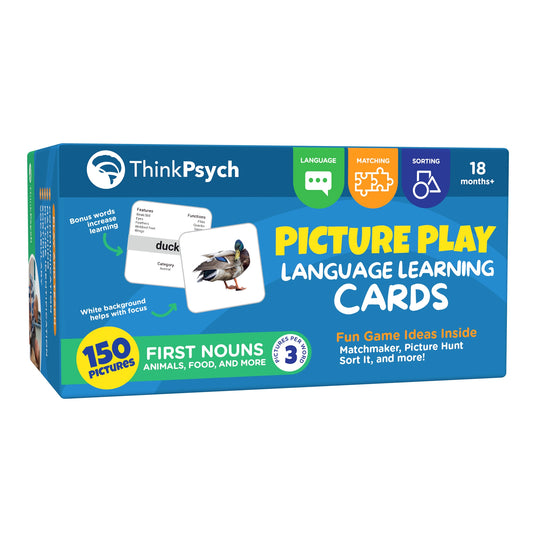
How to Teach Your Child to Love School
Share
Every child has a different experience in school. While some are excited to learn new things and participate in the classroom, others may drag their feet when you’re trying to get them out the door in the morning.
Although kids are naturally curious, going to school can be a source of anxiety and discomfort for many students. As a parent, there are many strategies you can try to help teach your child to love school.
1. Talk It Out
If your child complains about going to school, the first thing you can do is ask them why. Your first instinct may be to brush it off and tell them school is mandatory. However, having an honest conversation about their feelings will help you get to the root of the problem.
Your child may be having trouble with another student, or they could be falling behind in a class. Opening up the conversation can lead you to discover that your child is being bullied or that they have a learning disability. Whatever the cause may be, finding a solution to that problem will be the first step in your child’s journey to loving school.
2. Encourage Extracurricular Activities
While skilled educators can make classroom experiences fun and engaging, emphasize to your kid that schooling is more than lectures. Your child can participate in after-class endeavors to have a well-rounded school experience.
Pursuing sports and joining clubs can enrich your young student’s life. Athletics promotes physical fitness, enhances cognition, teaches discipline and boosts confidence. Clubs help kids nurture interests, develop character, socialize with peers of various ages, learn about responsibility and practice leadership skills.
All of these activities can boost your child’s mental health outside of the classroom. In turn, they may start to feel less stressed about going to school and more connected to the school community.
3. Extend Learning at Home
Children who fall behind in classroom discussions may enjoy school less than their classmates. However, it can be hard for many children to ask for help because they feel embarrassed.
Even studious kids can feel insecure about their ability and speed to learn new concepts. If your child struggles with something like this, step in by bridging gaps in comprehension at home.
Ask your learner about their academic challenges without asking them. Direct questions may sound confrontational, compelling them to become defensive and secretive. Start by asking them what their favorite class is and why. Opening with a positive question can get them talking and feeling comfortable with the topic. Then, try asking about what they learned in other classes that day. If they have a hard time explaining the concept they learned in math, for example, then they might need some help in that subject.
After knowing what’s eating your child, offer to demystify confusing concepts and solve tricky problems together. If you’re familiar with the topic, explain it as simply as possible and take questions until your grade-schooler or high schooler understands it enough to keep up in class. If not, consider hiring a tutor. Extra support outside the classroom should make school a less scary place.
4. Acknowledge Learning Difficulties
Poor academic performance doesn’t necessarily mean low intelligence. Your child may have a disability hindering them from doing well in class.
Dyslexia is a roadblock to reading and writing. School-age kids with dyscalculia may struggle to comprehend math concepts, making it difficult to add, subtract, multiply and divide mentally, count money, and tell time. Dysgraphia impacts handwriting and thought expression through drawing or writing.
Students living with an undiagnosed learning disability may feel frustrated and even demonstrate behavior problems. Noticing and addressing your child’s unique needs is vital to giving them the proper support they require to keep their disability from becoming a long-term learning impediment.
5. Create a Designated Homework Spot
Keeping up with homework can be a leading cause of school stress. A good strategy is establishing a routine to train your child to prioritize homework before play. This required task should feel less like a chore when done in a familiar groove.
Allow your child to select a designated homework spot and personalize their workspace. Giving them that freedom lets them practice independence at home, which can feel suffocating due to a lack of privacy.
Shop ThinkPsych Products
Think twice about giving your kid free rein to complete homework anywhere, for some spaces are less conducive to schoolwork. Instead, let your child choose from multiple options you find acceptable. It can be a clutter-free kitchen island against a backdrop of green walls or a quiet, secluded alcove beside the landing with a view. This lets you stay on top of the situation while giving them a sense of control.
6. Focus on the Process
Fixating on negative things more than positive ones is human nature. Your child may dislike school when you only criticize what they do wrong and pay less attention to what they do right.
Schooling is a marathon, not a sprint. Although bad grades should be a cause for concern, they shouldn’t be the only thing you acknowledge as a parent.
Avoid overreacting to low grades. Make it clear to your child that they must improve them to pass and move up the academic ladder. At the same time, recognize their achievements and celebrate their victories. Concentrating exclusively on negatives or positives is a recipe for disaster, so be sure to balance things out.
7. Avoid Overfilling Their Schedule
Parents with foresight know extracurricular involvement is crucial for acing college applications. Many enroll their kids in piano classes, sign them up for sports teams, take them to science conventions and register them for taekwondo tournaments once they reach school age.
Although kids can benefit from broadening their horizons, they shouldn’t be overbooked. Children need rest and recreation just as much as academics and activities to have a fulfilling childhood. Aside from regular breaks throughout the day, your kid needs a healthy sleep regimen to feel refreshed and be productive.
When forced, extracurricular activities can seem like work. Additionally, having too many activities can cut back on study and homework time, leading kids to feel unprepared for tests.
Make sure your child’s schedule has a healthy balance between extracurriculars, schoolwork and downtime.
8. Foster Social Relationships
Friends make school life memorable. While some kids make friends naturally, others may have a harder time. Make sure to check in with your child and ask them about their friends at school to see if they have a good social life.
As a parent, you can arrange playdates and talk with other parents about opportunities to make new connections. While your child doesn’t have to go to everything, it is important to allow them to attend birthday parties or school events to enjoy time with friends.
Love of School Is Learnable
Teaching your child to like schooling isn’t as straightforward as demonstrating how the water cycle works or introducing geometry. You should use a nuanced approach to nudge your little one in the right direction without forcing anything. That will help them become curious, lifelong learners.
Sources:
- Mathematics disorder
https://medlineplus.gov/ency/article/001534.htm
- Is There a Fault in Fault-Finding?
https://knowledge.insead.edu/career/there-fault-fault-finding
- How Does Learning Environment Affect Academic Achievement?
https://ccaeducate.me/blog/how-does-learning-environment-affect-academic-achievement/

















